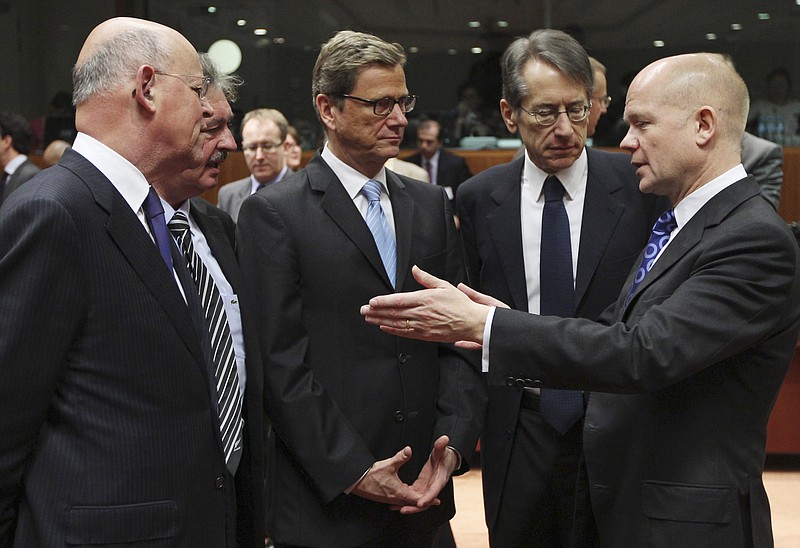BRUSSELS (AP) - EU foreign ministers failed Thursday to reach an agreement to impose an oil embargo against Iran - a measure that some argued would have choked off funding for Iran's alleged program to develop nuclear weapons.
But the ministers, incensed by the attack Tuesday by an angry mob on the British embassy in Tehran, did impose a new round of sanctions targeting dozens of people, groups and businesses in the country.
The ministers also imposed new sanctions on Syrian individuals and businesses in hope of pressuring the regime there to halt its deadly crackdown on anti-government protests.
British Foreign Secretary William Hague said the two issues are related, accusing Iran of supporting the violence in Syria. The U.N. High Commissioner for Human Rights estimates Sryian President Bashar Assad's regime has killed more than 4,000 people over the past several months.
"There is a link between what is happening in Iran and what is happening in Syria," Hague said.
In Iran, EU sanctions were imposed on 37 people and 143 "entities" - companies or organizations. The sanctions include a freeze on assets held in the European Union and a ban on traveling to EU countries.
The full list of names of those targeted will not be known until they are published in the official journal of the EU on Friday. But the official conclusions of the meeting said they include the Islamic Republic of Iran Shipping Line and members of, and entities controlled by, the Islamic Revolutionary Guards Corps.
French Foreign Minister Alain Juppe said that Greece, which relies on Iranian oil, had objected to a ban on buying it. But he said work toward an embargo would continue.
"Greece has put forward a number of reservations," Juppe said. "We have to take that into account. We have to see with our partners that the cuts can be compensated by the increase of production in other countries. It is very possible."
Iran has denied it is pursuing nuclear weapons. The attack on the British embassy is believed to have begun as a state-approved protest over Western sanctions linked to the country's nuclear program.
Britain pulled its diplomats out of Iran after its embassy was stormed. Germany, France and the Netherlands have recalled their ambassadors in solidarity.
With regard to Syria, the EU foreign ministers imposed sanctions on 12 people and 11 entities, adding to the list of those previously sanctioned by the EU. The bloc is working with the Arab League to halt the violence, and the league's chief, Nabil Elaraby, attended Thursday's meeting.
A statement from the foreign ministers said the crackdown by the Syrian government "risks taking Syria down a very dangerous path of violence, sectarian clashes and militarization."
The statement also said the EU is extremely worried about the deteriorating living conditions of the Syrian people in areas affected by the unrest, especially in the region of Homs. The EU urged the Syrian government to allow humanitarian organizations immediate access.

